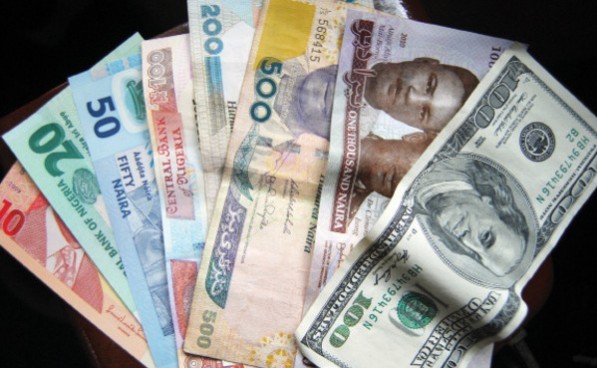New forex policy’ll keep naira at 350/dollar – Experts

The Nigeria Naira is expected to trade around 350 per dollar in the coming days as uncertainty over the implementation of the Central Bank of Nigeria’s planned new flexible exchange rate policy persists. The local currency retreated to 350 to the dollar on the parallel market on Thursday from 360 a dollar last week, Punchng report.
The naira had weakened shortly after the CBN’s Monetary Policy Committee announced plans for new exchange rate policy last Tuesday, but strengthened when the details of the new policy were delayed, Reuters reported.
On the official interbank window, the naira was trading around the peg rate of 197 to the dollar.
“The central bank was still consulting with bank industry players to determine how the new forex policy would work,” one senior banker said.
Economic and financial experts said the CBN needed to release the details of the proposed flexible forex policy as soon as possible.
An economist and Head, Investment and Research, Afrinvest West Africa Limited, Mr. Ayodeji Ebo, said the proposed flexible exchange rate policy would enhance liquidity in the market and help the naira to stabilise.
According to him, the market will continue to remain relatively steady until the details of the policy are announced.
Ebo foresees the naira-dollar exchange rate close to 300 per dollar when the policy is eventually implemented.
According to Reuters, the kwacha is expected to remain under pressure versus the greenback next week due to strong dollar demand in Africa’s second-largest copper producer.
Kenya’s shilling was seen easing, undermined by some foreign investors selling their Treasury bonds due to falling yields.
But its weakening was expected to be limited by prospects of the central bank selling dollars, traders said.
“We are seeing it is bound to weaken. We have foreigners who bought bills and bonds on January booking profits, exiting. They think rates have bottomed now. The central bank is the elephant in the room,” a senior trader at one commercial bank told Reuters.
Ghana’s cedi is expected to remain under pressure due to high dollar demand from oil importers and multinationals repatriating funds abroad.









0 Comments